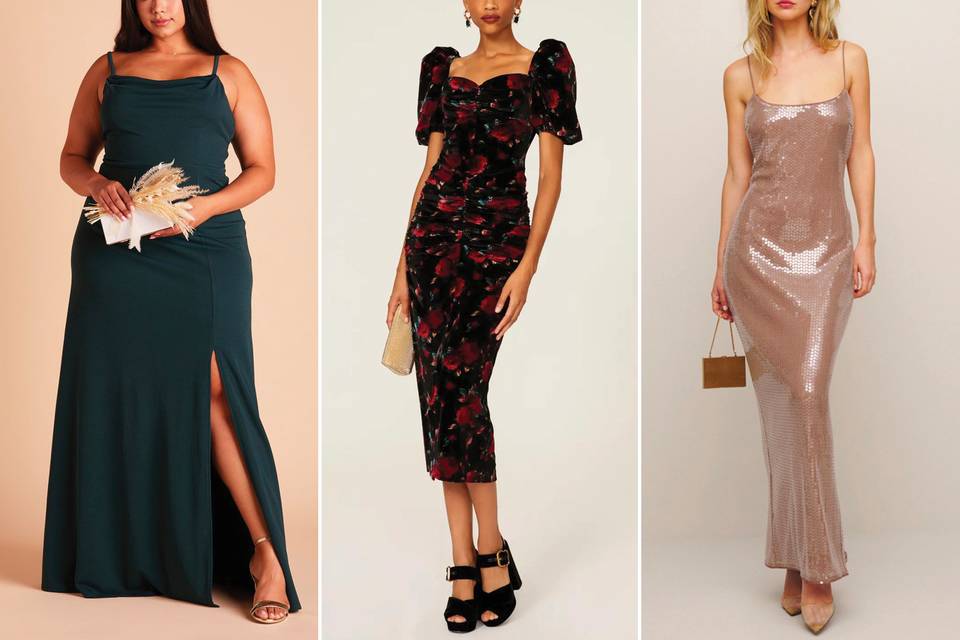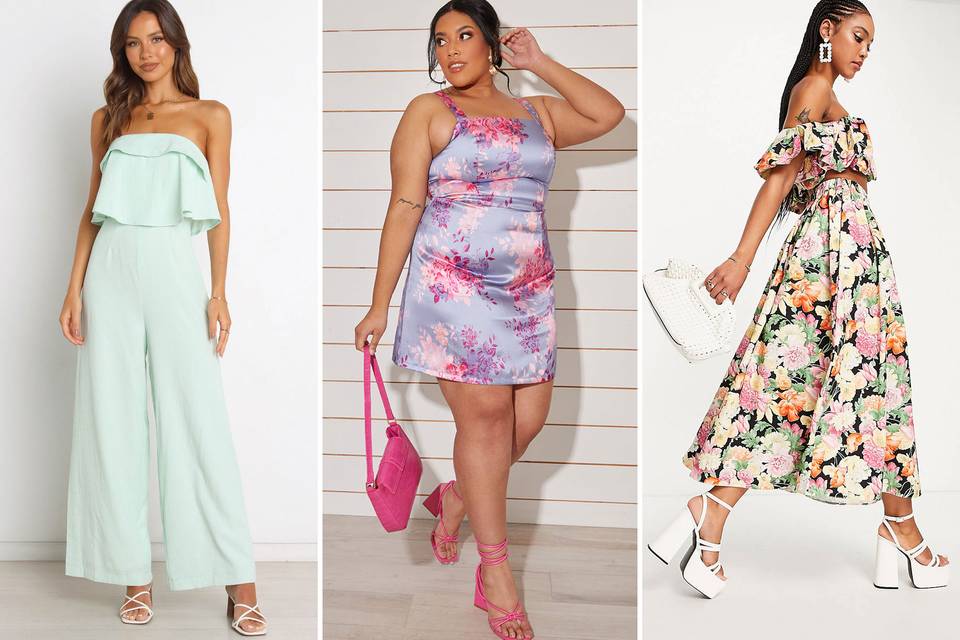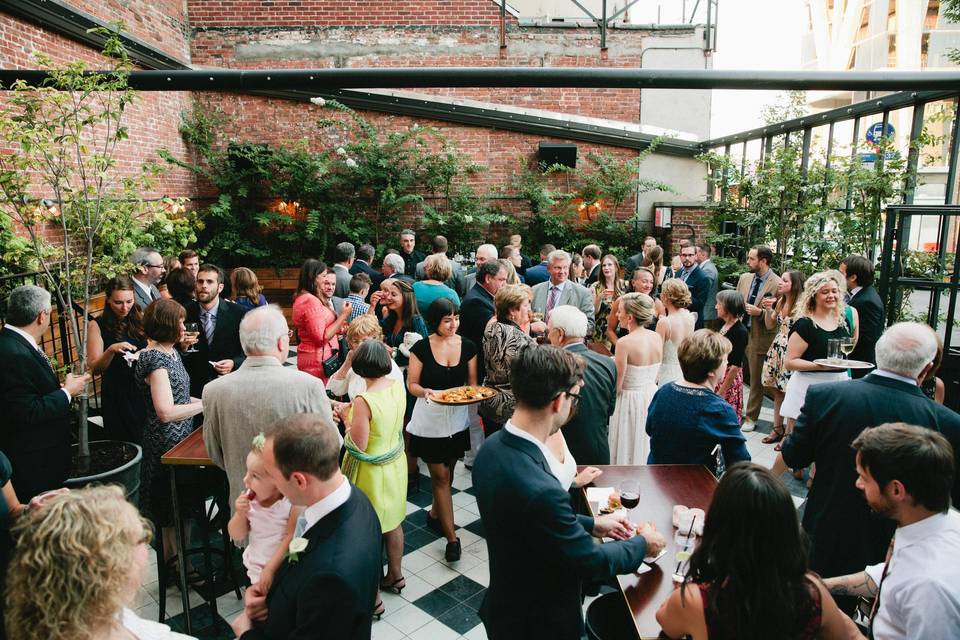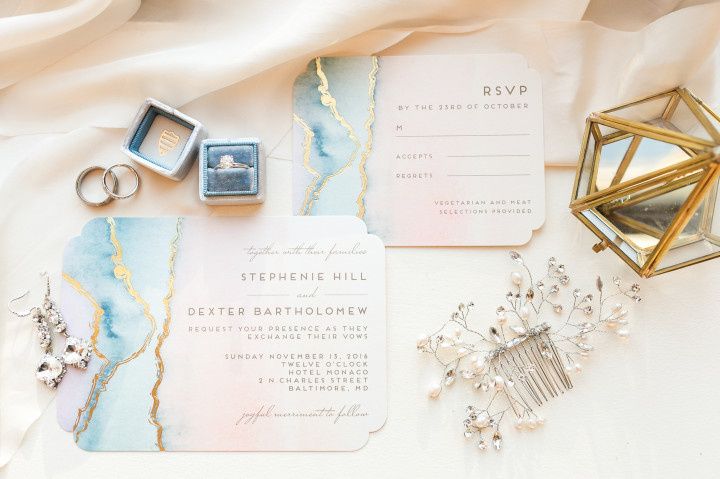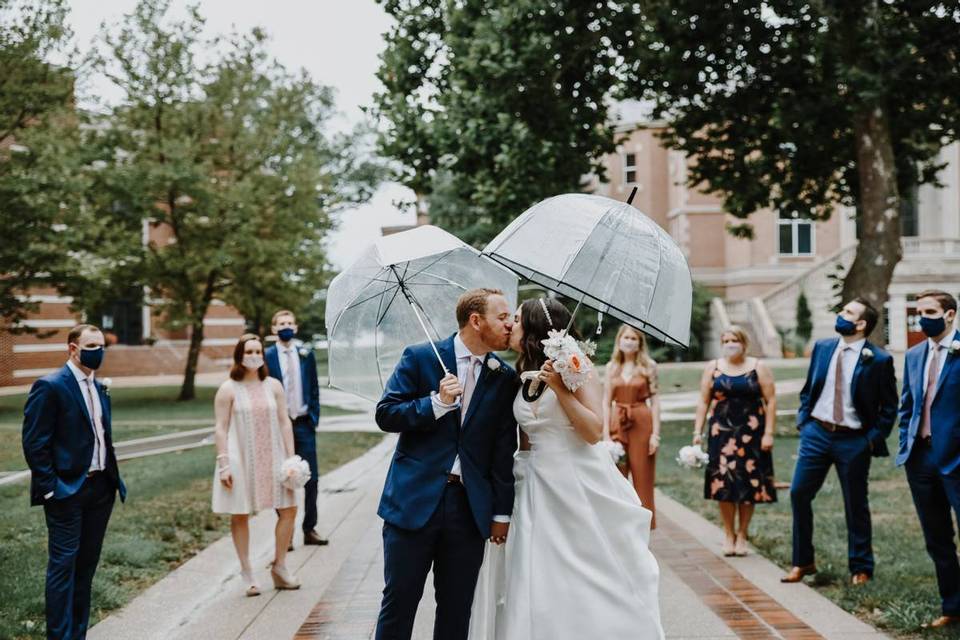7 Strategies for Staying Sober at a Wedding
Avoiding alcohol at a wedding can be tricky, but we've got the expert advice to help you navigate staying sober as a wedding guest.
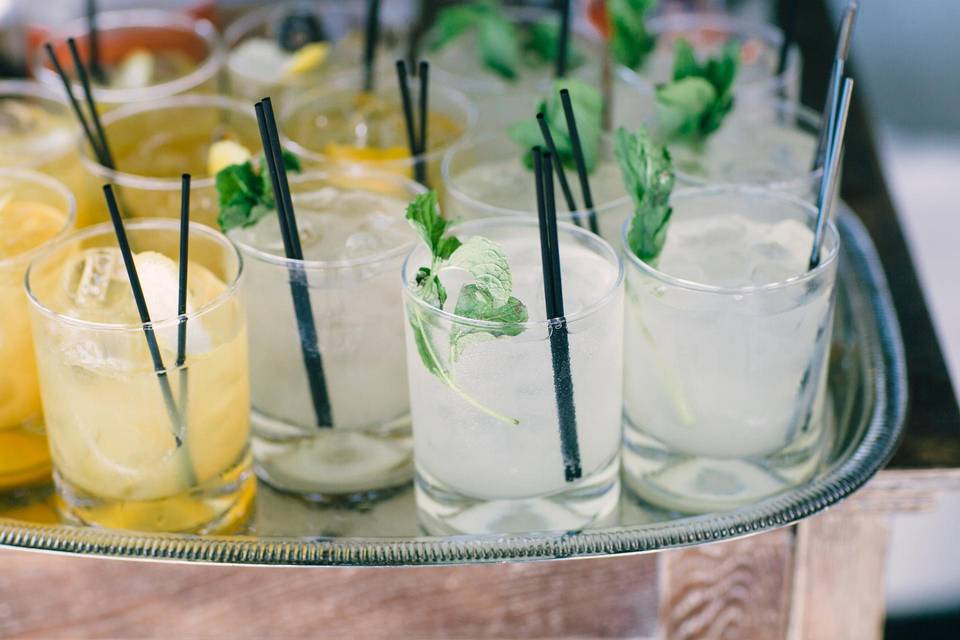
Since having an open bar is the standard approach to serving alcohol at a wedding, it can be extremely difficult to avoid boozing as a guest. But if you are attempting to cut back on your drinking habit or you’re avoiding it for health reasons or pregnancy, you may RSVP “yes” to witnessing love, but “no” to getting tipsy. The trouble, of course, is being around beer, wine, cocktails, and other fun spirits that could tempt you to the dark side, says Maddie Ferraro of The Renaissance in Richmond, Virginia. Plus, peer pressure can’t be overlooked, either. “It doesn't even have to be anything verbal — with 90 percent of a wedding hitting the bar hard, it may be difficult for the other 10 percent not to join,” she says.
However, it can absolutely be done. Here, strategies and tricks for staying sober at your next nuptial celebration.
Think about how alcohol makes you feel.
If you are on the fence about drinking or not drinking at a wedding, it’s important to take a beat and consider carefully how alcohol makes you feel, recommends nutrition, fitness and health expert Danielle Gray, CPT, Pn1. As she puts it, while many commercials and social media posts depict alcohol as creating a good time and providing an enhanced experience, that’s not always the case. For many people, feeling tipsy can lead to experiencing intense emotions, both good and bad. “While happy for the couple, many are faced with their own relationship shortcomings and turn to alcohol to forget about it for the day,” she shares as an example. Plus, while you may feel okay after one glass of champagne, an open bar encourages ongoing boozing, which could make you feel mentally and physically down the next day.
When making your decision, try and consider how it will make you feel, from all angles, before ordering a round (or two or three).
Order a mocktail.
Just because you’re forgoing alcohol doesn’t mean you have to chug water all evening long. Mocktails are an exciting way to feel part of the party while also enjoying a refreshing beverage. “Having a fancy drink in your hand in a pretty glass with an orange or lime slice is a great way to blend in and hide your sober attitude,” Ferraro says.
Before you leave to attend the wedding, research a few fun options to enjoy at the reception. “Most venues will have quite a few options for non-alcoholic beverages like juices, soft drinks, simple syrups, fruits to muddle, dairy options, and coffees,” she continues. “Creating something with things that most banquet bars carry will get you in the right headspace to stay true to your intentions.”
Focus on the food.
One of the reasons many booze at a wedding is to feel part of the group. It can be socially awkward to stand with friends, chatting, watching everyone go bottoms up while your hands are empty. So, why not put something in ‘em? Since weddings are also famous for plenty of food options, Ferraro says to grab an appetizer, venture to the fondue fountain or flag down a server. By occupying yourself and your mouth with something tasty, the thought of a drink may not even cross your mind if you have decided not to drink for the event,” she adds.
Volunteer as the designated driver.
When you choose not to drink or consume alcohol for your personal health or due to pregnancy, there is one way to become everyone’s very best friend. How? Volunteering to be the designated driver. Gray says this is one of the most socially acceptable reasons not to drink, and it earns you mega brownie points among your peers. “Not only does this create a safer environment for everyone involved, but it also gives you a purpose and a strong reason not to drink,” she continues. “People at the wedding will thank you for allowing them to drink, knowing they have a responsible ride home.”
Find an accountability buddy.
It’s a cliche saying, but it’s also true: there’s strength in numbers. Whether it’s walking home at night in the dark or attempting a wellness challenge, having someone along for the adventure makes it more likely you’ll stick to your goals. If you can talk your plus one into being sober with you, it’ll be much easier to avoid alcohol during the celebration. “Have the conversation before the wedding on the decision not to drink together,” suggests Bri Marabais, a bridal stylist at The Bridal Finery in Winter Park, Florida. “It would be helpful to try and stay with that person throughout the wedding as your sober companion to avoid any awkward situations where you might be presented with alcohol and don't have an ally by your side.”
Or, if you don’t have a date or your date wants to drink, find another sober pal at the reception. Whether it’s an older aunt or uncle or a pregnant person, they will likely be excited if another person avoids the bar for the evening.
Leave early if you feel uncomfortable.
While most wedding guests can’t wait to get the dance floor heated up, the ceremony is at the heart of the wedding. After all, that’s the point of the gathering: two people joining their lives together. So if you don’t want to stay for the most intoxicated hours of the celebration? That’s okay, Marbais says.
“Most of the heavy drinking goes down once the formalities have taken place, like the first dance, dinner, and cake cutting,” she continues. “Let’s face it; those are the meaningful moments at the wedding you wouldn't want to miss. Anything after that is primarily when the drinks start flowing. Bowing out of the reception before that starts to take place is the safest and easiest way to avoid being questioned or hassled for not drinking.”
Remember, you don’t owe anyone an explanation.
Don’t want to order mocktails? Going to a wedding where driving isn’t necessary? And yet, you still want to avoid drinking? That’s your choice, and you don’t owe anyone an explanation. If fellow guests pester you, ask for your decision to be respected. “State that you are adhering to a healthier lifestyle for yourself and would appreciate it if those around you would respect that. State affirmatively that you are not drinking,” Gray continues. “You do not need an excuse; you do not owe anything to anyone.”
Surprisingly, Gray says this approach often works extremely well if you put and keep your foot down by sticking to your word.

